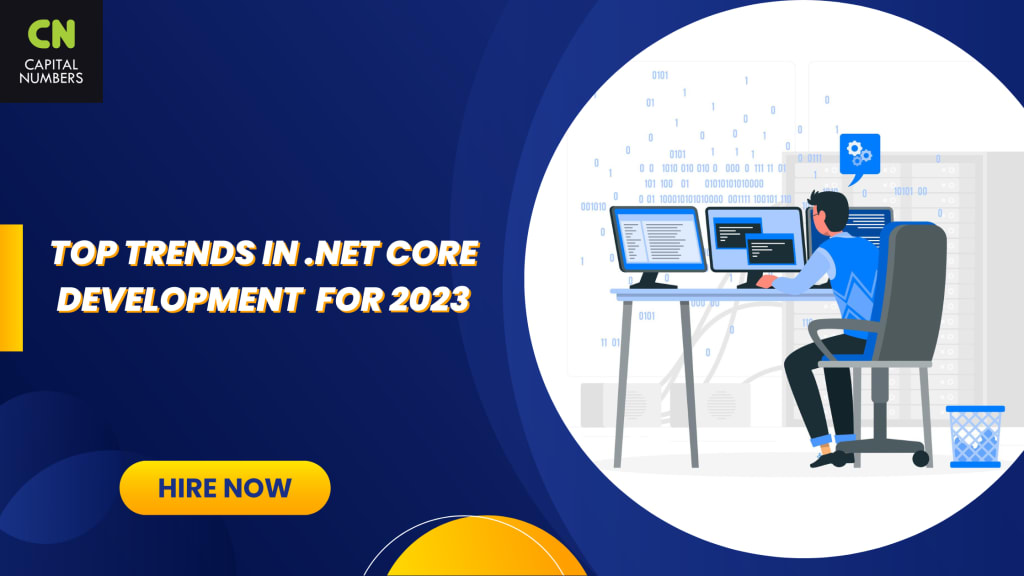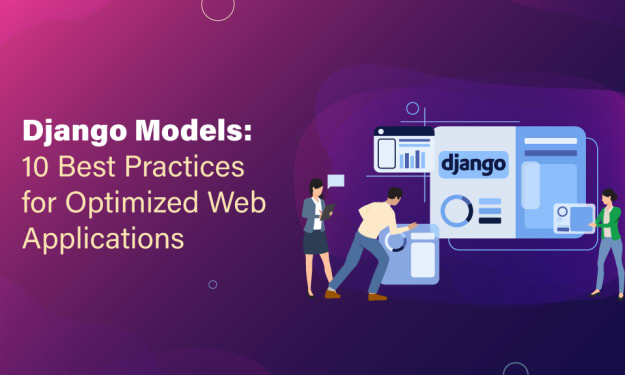Top Trends in .NET Core Development for 2023
Embracing the Next Wave of .NET Core Development Services in 2023

In the ever-evolving landscape of software development, staying up-to-date with the latest trends is crucial for businesses and developers alike. The year 2023 holds great promise for .NET Core development services, as new technologies and practices continue to reshape the industry.
In this article, we will explore some of the top trends that will dominate the .NET Core development scene in 2023.
1. Microservices Architecture for Scalability and Flexibility
Microservices architecture has gained significant traction in recent years, and it's set to become even more popular in 2023. This architectural style allows developers to break down complex applications into smaller, independent services that can be developed, deployed, and scaled individually. By leveraging microservices, businesses can achieve greater scalability, flexibility, and resilience in their .NET Core applications.
2. Serverless Computing for Cost Optimization
Serverless computing is another trend that will continue to thrive in 2023. By adopting serverless architecture, .NET Core developers can focus on writing code without worrying about infrastructure management. Serverless platforms like Azure Functions and AWS Lambda allow developers to execute code in response to events, paying only for the resources actually consumed. This approach not only reduces costs but also improves scalability and reduces time to market for applications.
3. AI and Machine Learning Integration
Artificial Intelligence (AI) and Machine Learning (ML) are revolutionizing various industries, and .NET Core developers are not left behind. In 2023, integrating AI and ML capabilities into .NET Core applications will be a prominent trend. With frameworks like ML.NET and libraries like TensorFlow.NET, developers can easily incorporate intelligent features such as natural language processing, image recognition, and predictive analytics into their applications.
4. Blazor WebAssembly for Rich Web Applications
Blazor WebAssembly is a game-changer for .NET Core web development. It enables developers to build interactive and feature-rich web applications entirely in C# without relying on JavaScript frameworks. With Blazor WebAssembly, developers can create dynamic user interfaces and leverage the power of .NET on the client side. As a result, developers can streamline development, enhance performance, and deliver exceptional user experiences.
5. Cloud-Native Development with Kubernetes
Cloud-native development is on the rise, and Kubernetes has become the de facto orchestration platform for containerized applications. .NET Core developers 2023 will increasingly embrace Kubernetes to deploy and manage their applications in a cloud-native environment. Kubernetes provides automatic scaling, load balancing, and self-healing capabilities, enabling seamless deployment and efficient utilization of resources.
6. DevSecOps for Enhanced Security and Collaboration
In 2023, DevSecOps practices will be indispensable for .NET Core development. DevSecOps emphasizes integrating security practices throughout the development lifecycle, ensuring that security measures are not an afterthought. By integrating security into every stage of development, from planning to deployment, businesses can minimize vulnerabilities and respond quickly to security threats. Additionally, DevSecOps promotes collaboration between development, operations, and security teams, fostering a culture of shared responsibility.
7. Low-Code Development for Rapid Application Delivery
Low-code development platforms empower developers to create applications with minimal hand-coding. In 2023, the adoption of low-code platforms will continue to grow within the .NET Core community. These platforms offer drag-and-drop interfaces, visual modeling, and pre-built components, enabling faster application development and delivery. With low-code development, businesses can accelerate time to market, reduce development
8. Containerization with Docker for Portability and Efficiency
Containerization has revolutionized the way software is developed and deployed. In 2023, Docker will continue to play a vital role in .NET Core development services. Docker allows developers to package applications and their dependencies into lightweight, portable containers. These containers can then be deployed consistently across different environments, ensuring that the application behaves consistently regardless of the underlying infrastructure. With Docker, .NET Core developers can achieve greater efficiency, scalability, and deployment flexibility.
9. Progressive Web Applications (PWAs) for Enhanced User Experience
Progressive Web Applications (PWAs) have gained immense popularity in recent years, and their significance will only grow in 2023. PWAs leverage modern web technologies to provide a native-like experience to users across different devices and platforms. By utilizing service workers, offline caching, and push notifications, .NET Core developers can create PWAs that offer fast loading times, offline functionality, and seamless user interactions. With the ability to install PWAs directly from the browser, businesses can reach a wider audience and deliver a superior user experience.
10. Enhanced Focus on Accessibility and Inclusive Design
Inclusivity and accessibility are essential considerations for modern software development. In 2023, .NET Core will place increased emphasis on creating applications that are accessible to users with disabilities. This involves implementing features such as proper semantic markup, keyboard navigation support, and alternative text for visual elements. By adopting inclusive design practices, businesses can ensure that their applications are usable by a diverse range of users, fostering inclusivity and compliance with accessibility standards.
11. Cross-Platform Development with Xamarin
As the demand for mobile applications continues to rise, cross-platform development frameworks become indispensable. Xamarin, a popular framework for building cross-platform mobile apps using .NET, will remain a top trend in 2023. Xamarin allows developers to write code once and deploy it across multiple platforms, including iOS, Android, and Windows. This not only saves development time but also enables businesses to reach a broader user base with their applications.
12. Internet of Things (IoT) Integration for Smart Solutions
The Internet of Things (IoT) has transformed the way we interact with the physical world. In 2023, .NET Core will increasingly explore IoT integration to develop smart solutions. With the ability to connect devices, gather sensor data, and analyze it in real-time, businesses can create innovative applications for various industries. Whether it's home automation, industrial monitoring, or healthcare systems, .NET Core provides a robust platform for building IoT-powered applications.
Conclusion
The year 2023 promises exciting advancements and trends in .NET Core development services. From embracing microservices architecture and serverless computing to integrating AI and ML capabilities, developers have numerous opportunities to enhance their applications. With technologies like Blazor WebAssembly, Kubernetes, and Docker, they can deliver highly scalable and efficient solutions. Moreover, focusing on accessibility, cross-platform development, PWAs, and IoT integration will lead to more inclusive and innovative applications.
Partner with Capital Numbers to harness the power of .NET Core and drive your business forward in the digital landscape of 2023.
About the Creator
Nicholas Winston
Working as an IT Manager in a reputed Digital Transformation and Software Solution Company in India. Being a technical writing enthusiast, I have served in the Information technology, Services, and Product industry.






Comments
Nicholas Winston is not accepting comments at the moment
Want to show your support? Send them a one-off tip.